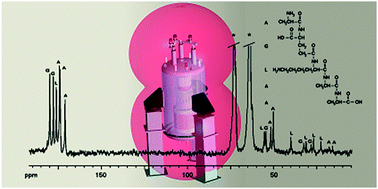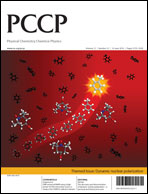A dedicated spectrometer for dissolution DNPNMR spectroscopy
Abstract
Using low temperature dynamic nuclear polarisation (DNP) in conjunction with dissolution makes it possible to generate highly polarised nuclear spin systems for liquid state applications of

- This article is part of the themed collection: High field dynamic nuclear polarization – The renaissance

 Please wait while we load your content...
Please wait while we load your content...